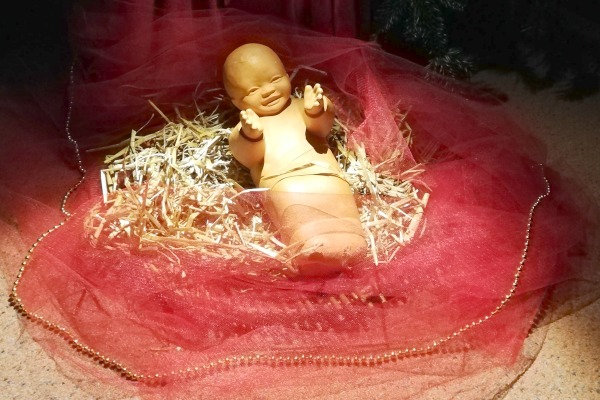Contemplating our path
30/12/2020

Celebrating Incarnation
Celebrating Incarnation
25th December 2020
It seems to me that the Scriptures today tell us that there are three things we celebrate at Christmas
- We celebrate the fact that Incarnation happened, long ago, when Jesus was born in Bethlehem.
- We celebrate that God is amongst us, that Incarnation continues to happen in and through us.
- And we celebrate that we are called to be heralds of that Good News.
Firstly, we celebrate Incarnation. When this child, Jesus, was born it was a birth like every other human birth, and yet, it was like no other human birth.
Like every other human birth, Jesus’ birth would have been painful, messy, risky. The gospels don’t tell us anything about Mary’s labour, whether it was long and extremely painful or sudden and very scary. They don’t mention whether the traditional midwives were with Mary to help her, or whether Joseph paced anxiously up and down outside the makeshift shelter. They only tell us what happened after the birth. It was the poor and simple ones, the shepherds, who first recognized the news that resounded around the heavens. It was they who recognized that in this fragile child, the Word had become Flesh, in this baby, God had entered into an entirely new relationship with all of creation.
The Word was made flesh, we hear in John’s Gospel. The Word of God, spoken since the beginning of creation, took on human form. God became human with flesh and blood like yours and mine, with intellect and emotions like yours and mine. And this has made all the difference. Because of Jesus, the Word Incarnate, we humans are now able to know and understand God a little more, since we know that God is with us, close to us, as close as our flesh and bones.
Secondly, we celebrate that Incarnation continues to happen. In the second reading today, from the letter to the Hebrews, we hear: At various times in the past and in various different ways, God spoke to our ancestors; and now he has spoken to us through his Son. So why would God not continue to speak? In Jesus, God spoke a definitive Word, but not a final Word. God continues to speak, to reveal who and how God is. The Word continues to echo through time and space, and it is us who hear and embody the Word in our time and in our place. Often we hear it as a whisper or a far-off echo, at other times it is a clear, concise call. However, we do hear that Word every time we are reminded of the promise of Emmanuel - God-With-Us.
- Every time we see a glimmer of light in the darkness,
- every time hope overcomes fear and despondency,
- every time goodness prevails,
- every time we are offered love and compassion, generosity and forgiveness,
- every time we find ways to care for this world, our Common Home,
- every time we take a stand for justice,
- every time our minds and hearts are stretched to be open to others.
These are the moments when the Word is spoken in and through and around us, when Incarnation continues to happen.
And thirdly, we celebrate the fact that we are called to be heralds of this Good News that God is With Us, with all of humanity, indeed with all of creation. Today, God relies not so much on angels as on us! In the first reading from Isaiah, we read How beautiful on the mountains are the feet of one who brings good news, who heralds peace, brings happiness, proclaims salvation. We might not be shouting the news of God’s presence from the mountain tops, however we are proclaiming it through the way we live our daily lives. Because of Christmas, because of Incarnation, we can live our daily lives with hope and peace and deep joy.
The Word is made flesh, and does live among us, we see and hear this Word, full of grace and truth. We are gifted, we are blessed, and we are profoundly grateful. And that is worth celebrating.
Sue Flood osu
(the crib in the photo from Croatia, Zagreb)
